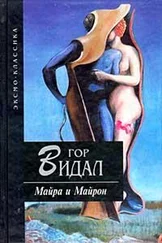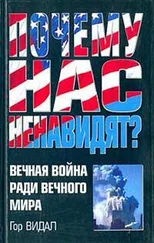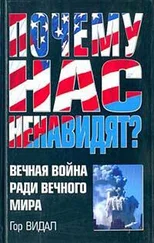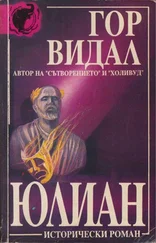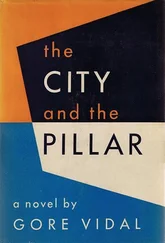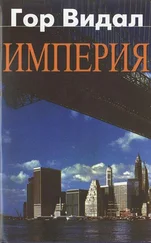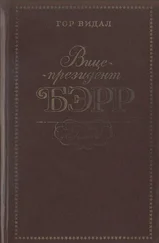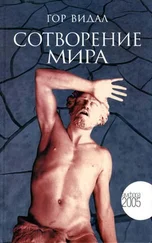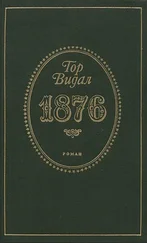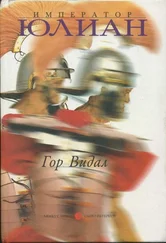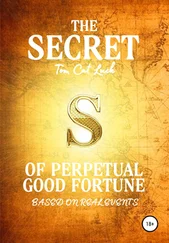Гор Видал - Perpetual War For Perpetual Peace
Здесь есть возможность читать онлайн «Гор Видал - Perpetual War For Perpetual Peace» весь текст электронной книги совершенно бесплатно (целиком полную версию без сокращений). В некоторых случаях можно слушать аудио, скачать через торрент в формате fb2 и присутствует краткое содержание. Жанр: Проза, на английском языке. Описание произведения, (предисловие) а так же отзывы посетителей доступны на портале библиотеки ЛибКат.
- Название:Perpetual War For Perpetual Peace
- Автор:
- Жанр:
- Год:неизвестен
- ISBN:нет данных
- Рейтинг книги:5 / 5. Голосов: 1
-
Избранное:Добавить в избранное
- Отзывы:
-
Ваша оценка:
- 100
- 1
- 2
- 3
- 4
- 5
Perpetual War For Perpetual Peace: краткое содержание, описание и аннотация
Предлагаем к чтению аннотацию, описание, краткое содержание или предисловие (зависит от того, что написал сам автор книги «Perpetual War For Perpetual Peace»). Если вы не нашли необходимую информацию о книге — напишите в комментариях, мы постараемся отыскать её.
Perpetual War For Perpetual Peace — читать онлайн бесплатно полную книгу (весь текст) целиком
Ниже представлен текст книги, разбитый по страницам. Система сохранения места последней прочитанной страницы, позволяет с удобством читать онлайн бесплатно книгу «Perpetual War For Perpetual Peace», без необходимости каждый раз заново искать на чём Вы остановились. Поставьте закладку, и сможете в любой момент перейти на страницу, на которой закончили чтение.
Интервал:
Закладка:
It is now June 11, a hot, hazy morning here in Ravello. We've just watched Son of Show Time in Terre Haute, Indiana. CNN duly reported that I had not been able to be a witness, as McVeigh had requested: the attorney general had given me too short a time to get from here to there. I felt somewhat better when I was told that, lying on the gurney in the execution chamber, he would not have been able to see any of us through the tinted glass windows all around him. But then members of the press who were present said that he had deliberately made "eye contact" with his witnesses and with them. He did see his witnesses, according to Gate McCauley, who was one. "You could tell he was gone after the first shot," she said. She had worked on his legal case for a year as one of his defense investigators.
I asked about his last hours. He had been searching for a movie on television and all he could find was Fargo , for which he was in no mood. Certainly he died in character; that is, in control. The first shot, of sodium pentothal, knocks you out. But he kept his eyes open. The second shot, of pancuronium bromide, collapsed his lungs. Always the survivalist, he seemed to ration his remaining breaths. When, after four minutes, he was officially dead, his eyes were still open, staring into the ceiling camera that was recording him "live" for his Oklahoma City audience.
McVeigh made no final statement, but he had copied out, it appeared from memory, "Invictus," a poem by W. E. Henley (1849–1903). Among Henley's numerous writings was a popular anthology called Lyra Heroics (1892), about those who had done selfless heroic deeds. I doubt if McVeigh ever came across it, but he would, no doubt, have identified with a group of young writers, among them Kipling, who were known as "Henley's young men," forever standing on burning decks, each a master of his fate, captain of his soul.
Characteristically, no talking head mentioned Henley's name, because no one knew who he was. Many thought this famous poem was McVeigh's work. One irritable woman described Henley as "a 19 thcentury cripple." I fiercely e-mailed her network: the one-legged Henley was "extremities challenged."
The stoic serenity of McVeigh's last days certainty qualified him as a Henley-style hero. He did not complain about his fate; took responsibility for what he was thought to have done; did not beg for mercy as our always sadistic media require. Meanwhile, conflicting details about him accumulate — a bewildering mosaic, in fact — and he seems more and more to have stumbled into the wrong American era. Plainly, he needed a self-consuming cause to define him. The abolition of slavery or the preservation of the Union would have been more worthy of his life than anger at the excesses of our corrupt secret police. But he was stuck where he was and so he declared war on a government that he felt had declared war on its own people.
One poetic moment in what was largely an orchestrated hymn of hatred. Outside the prison, a group of anti-death-penalty people prayed together in the dawn's early light. Suddenly, a bird appeared and settled on the left forearm of a woman, who continued her prayers. When, at last, she rose to her feet the bird remained on her arm — consolation? Ora pro nobis .
CNN gave us bits and pieces of McVeigh's last morning. Asked why he had not at least said that he was sorry for the murder of innocents, he said that he could say it but he would not have meant it. He was a soldier in a war not of his making. This was Henleyesque. One biographer described him as honest to a fault. McVeigh had also noted that Harry Truman had never said that he was sorry about dropping two atomic bombs on an already defeated Japan, killing around 200,000 people, mostly collateral women and children. Media howled that that was wartime. But McVeigh considered himself, rightly or wrongly, at war, too. Incidentally, the inexorable beatification of Harry Truman is now an important aspect of our evolving imperial system. It is widely believed that the bombs were dropped to save American lives. This is not true. The bombs were dropped to frighten our new enemy, Stalin. To a man, our leading World War II commanders, including Eisenhower, C. W. Nimitz, and even Curtis LeMay (played so well by George C. Scott in Dr. Strangelove ), were opposed to Truman's use of the bombs against a defeated enemy trying to surrender. A friend from live television, the late Robert Alan Aurthur, made a documentary about Truman. I asked him what he thought of him. "He just gives you all these canned answers. The only time I got a rise out of him was when I suggested that he tell us about his decision to drop the atomic bombs in the actual ruins of Hiroshima. Truman looked at me for the first time. 'O.K.,' he said, 'but I won't kiss their asses.'" Plainly another Henley hero, with far more collateral damage to his credit than McVeigh. Was it Chaplin's M. Verdoux who said that when it comes to calibrating liability for murder it is all, finally, a matter of scale?
After my adventures in the Ravello gardens (CBS's Bryant Gumbel was his usual low-key, courteous self and did not pull the cord), I headed for Terre Haute by way of Manhattan. I did several programs where I was cut off at the word Waco . Only CNN's Greta Van Susteren got the point. "Two wrongs," she said, sensibly, "don't make a right." I quite agreed with her. But then, since I am against the death penalty, I noted that three wrongs are hardly an improvement.
Then came the stay of execution. I went back to Ravello. The media were now gazing at me. Time and again I would hear or read that I had written McVeigh first, congratulating him, presumably, on his killings. I kept explaining, patiently, how, after he had read me in Vanity Fair , it was he who wrote me, starting an off-and-on three-year correspondence. As it turned out, I could not go so I was not able to see with my own eyes the bird of dawning alight upon the woman's arm.
The first letter to me was appreciative of what I had written. I wrote him back. To show what an eager commercialite I am — hardly school of Capote — I kept no copies of my letters to him until the last one in May.
The second letter from his Colorado prison is dated "28 Feb 99."
"Mr. Vidal, thank you for your letter. I received your book United States last week and have since finished most of Part 2—your poetical musings." I should say that spelling and grammar are perfect throughout, while the handwriting is oddly even and slants to the left, as if one were looking at it in a mirror. "I think you'd be surprised at how much of that material I agree with.
As to your letter, I fully recognize that "the general rebellion against what our gov't has become is the most interesting (and I think important) story in our history this century." This is why I have been mostly disappointed at previous stories attributing the OKC bombing to a simple act of "revenge" for Waco — and why I was most pleased to read your Nov. article in Vanity Fair. In the 4 years since the bombing, your work is the first to really explore the underlying motivations for such a strike against the U.S. Government — and for that, I thank you. I believe that such in-depth reflections are vital if one truly wishes to understand the events of April 1995.
Although I have many observations that I'd like to throw at you, I must keep this letter to a practical length — so I will mention just one: if federal agents are like "so many Jacobins at war" with the citizens of this country, and if federal agencies "daily wage war" against those citizens, then should not the OKC bombing be considered a "counter-attack" rather than a self-declared war? Would it not be more akin to Hiroshima than Pearl Harbor? (I'm sure the Japanese were just as shocked and surprised at Hiroshima — in fact, was that anticipated effect not part and parcel of the overall strategy of that bombing?)
Читать дальшеИнтервал:
Закладка:
Похожие книги на «Perpetual War For Perpetual Peace»
Представляем Вашему вниманию похожие книги на «Perpetual War For Perpetual Peace» списком для выбора. Мы отобрали схожую по названию и смыслу литературу в надежде предоставить читателям больше вариантов отыскать новые, интересные, ещё непрочитанные произведения.
Обсуждение, отзывы о книге «Perpetual War For Perpetual Peace» и просто собственные мнения читателей. Оставьте ваши комментарии, напишите, что Вы думаете о произведении, его смысле или главных героях. Укажите что конкретно понравилось, а что нет, и почему Вы так считаете.

